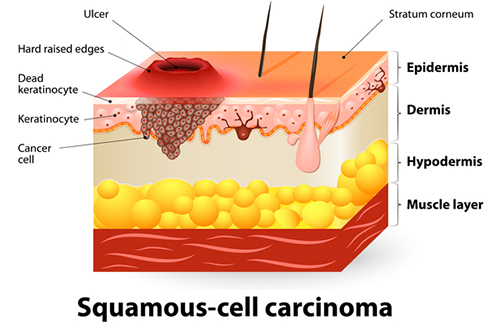
Scientists at Loyola University have identified a tumor gene that they believe may help predict survival outcomes in patients with cancer of the mouth and tongue—or squamous cell carcinoma.
The Loyola team wanted to tackle underlying issues associated with mouth cancers and addressed the problem by “reanalyzing publicly available genomic data for HPV-negative oral cavity squamous cell carcinoma to look for candidate biomarkers,” in addition to “evaluating the association of the identified biomarkers with survival.”
The investigators found that if the gene spectrin was expressed, patients were almost five times more likely to die. The authors wrote that “three genes were found to be associated with poor prognosis. The most significant association was seen with spectrin expression. Subjects whose tumors expressed spectrin were 4.60 times more likely to die at any given time when compared with those without spectrin.”
The findings from this study were published recently in Otolaryngology—Head and Neck Surgery through an article entitled “Candidate Biomarkers for HPV-Negative Head and Neck Cancer Identified via Gene Expression Barcode Analysis.”
Using a research tool called the Gene Expression Barcode, the scientists were able to examine genetic data from 54 patients with mouth cancer. The samples were taken from patients who had HPV-negative squamous cell carcinoma in the mouth.
The barcode algorithm is designed to estimate which genes are expressed and which are unexpressed. Like a supermarket barcode, the Gene Expression Barcode is binary, meaning it consists of ones and zeroes—the expressed genes are ones, and the unexpressed genes are zeros.
Surprisingly, even when researchers controlled for cancer stage and other factors, patients with the expressed spectrin gene still were significantly more likely to die than those in which the gene was turned off. This finding suggests that the spectrin gene may provide more information about survival than cancer stage alone.
“Our analysis of public genomic data shows promise in identifying biomarkers that may allow clinicians to make more accurate survival predictions,” The authors concluded. “Spectrin is a strong candidate for further biomarker testing.”
Yet, the researchers cautioned that the results are preliminary and need to be validated in an independent patient group.
Currently, research institutions have made public genetic data from nearly 100,000 patients, most of whom had cancer. In raw form, however, these data are too unwieldy to be of much practical use for most researchers. The Gene Expression Barcode tool applies advanced statistical techniques to make the mass of data much more user-friendly to investigators.












